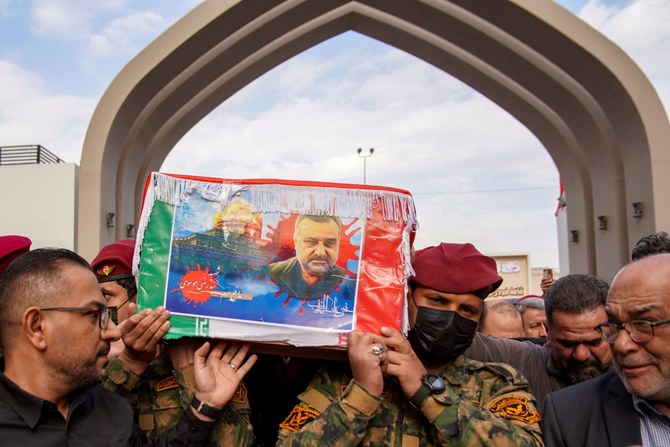PHILADELPHIA: At a church in Philadelphia, Pennsylvania, hundreds of people gathered recently for a weeknight charity fundraiser hosted by a celebrity guest.
The venue was not announced in advance due to security concerns, and attendance cost at least $60 a pop — with some spending $1,000 to get a photo with the host.
Yet, the event was not a gala hosted by a movie star or famed politician, but by a photojournalist: Gaza native Motaz Azaiza, whose images of the Israeli assault following the Oct. 7, 2023, attack launched him to international recognition.
Wearing a black T-shirt, jeans, sneakers, and gold-framed glasses, the 26-year-old boasts nearly 17 million followers on Instagram for his images from the war in Gaza.
“I wish you had known me without the genocide,” Azaiza told the crowd, his voice faltering.
Before the war, Azaiza was a relatively unknown figure, posting photos from his daily life in Deir Al-Balah, in the central Gaza Strip, to his roughly 25,000 Instagram followers at the time.
But as soon as the first strikes from Israel hit Gaza, he became a war photographer by virtue of circumstance, and his wartime posts soon went viral.
“As a photojournalist, I can’t watch this like anyone else, I’m from there, this is my home,” Azaiza said.
After surviving 108 days of Israeli bombardment, Azaiza managed to escape Gaza via Egypt, and he has since become an ambassador of sorts for the Palestinian territory, sharing the story of his people as the conflict rages on.
“Every time you feel like you regret leaving, but then you lose a friend, you lose a family, you say, OK, I saved my life,” Azaiza said.
Before the war, Azaiza had been hired to manage the online content for the UN Relief and Works Agency for Palestine Refugees in the Near East, or UNRWA, the humanitarian agency accused by Israel of providing cover for militants.
This month, he is touring the US to raise money for UNRWA USA, a nonprofit that collects funding for the agency.
“I can’t handle this much of fame ... it’s a real big responsibility,” Azaiza said from the fundraiser in Philadelphia.
“This is not me ... I’m waiting for the genocide to stop. I want to go back to Gaza, continue my work capturing pictures,” he added.
At one point, he blended into the crowd, posing for a selfie before shaking hands with the donors.
At the fundraiser, a UNRWA USA official solicited donations.
“Is there someone who wants to give $20,000? I would like to have $20,000. Nobody? Is there someone who wants to give $10,000? I would like to have $10,000,” the official calls out.
Once the call lowered to $5,000, five hands raised, and even more went up when asked for donations of $2,000 and $1,000.
One of the donors, Nabeel Sarwar, said Azaiza’s photographs “humanize” the people in Gaza.
“When you see a picture, when you see a child, you relate to that child, you relate to the body language, you relate to the dust on their face, the hunger, the sadness on their face,” Sarwar said.
“I think it’s those pictures that really brought home the real tragedy of what’s going on in Gaza.”
Veronica Murgulescu, a 25-year-old medical student from Philadelphia, concurred.
“I think that people like Motaz and other Gaza journalists have really struck a chord with us, because you can sense the authenticity,” she said.
“The mainstream media that we have here in the US, at least, and in the West, lacks authenticity,” she added.
Sahar Khamis, a communications professor at the University of Maryland who specializes in Arab and Muslim media in the Middle East, said Gazan journalists like Azaiza who have become social media influencers “reshape public opinion, especially among youth, not just in the Arab world, not just in the Middle East, but globally and internationally, including in the US.”
“The visuals are very, very important and very powerful and very compelling ... as we know in journalism, that one picture equals a thousand words.
“And in the case of war and conflict, it can equal a million words, because you can tell through these short videos and short images and photos a lot of things that you cannot say in a whole essay.”




























